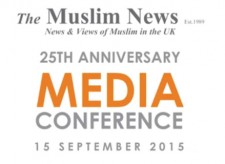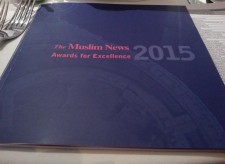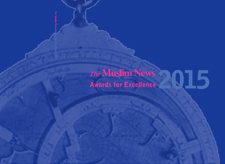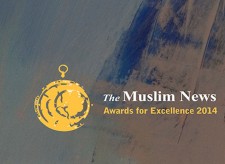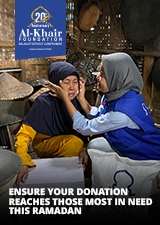Newly elected Ganief Hendricks will be sworn in as an MP using the first Qur’an written by Tuan Guru who wrote it from memory while in chains on Robben Island prison.
(Photo: M Botha /Muslim News)
Mahomed Faizal in Durban, South Africa
Since the advent of democracy in 1994, an avowedly Muslim party, will for the first time be represented in South Africa’s national Parliament. On May 8, the Al-Jama-ah Party, formed in 2007 by Cape Town-based Ganief Hendricks, secured a single seat in the country’s sixth national elections and will now represent the aspirations of a minority of Muslims in Parliament.
While the single seat in Parliament is unremarkable in itself, it points to a wider and more significant change in attitude amongst Muslims in exercising their vote and more broadly to issues of political participation.
During the country’s first democratic elections in 1994, where the African National Congress (ANC) under the leadership of Nelson Mandela, swept to victory with 62 per cent of the national vote, the overwhelming majority of the Black population voted for the liberation movement. Muslims of ethnic Indian and coloured backgrounds came out in support of the ANC as it was seen as a multiracial, multi-ethnic party that brought liberation to the country’s masses.
The prevalence of Muslims with struggle credentials within the senior ranks of the ANC was also a contributing factor in influencing the Muslim voting public to support the ANC.
Since the inaugural elections, there has been a steady decline in Muslim support for the ANC with a shift towards other parties, namely the opposition Democratic Alliance (DA). Lack of service delivery, rampant corruption, together with voter apathy, marginalisation of minorities and general disillusion with politics has fractured the once strong ties that the Muslim communities enjoyed with the ruling party.
According to a pre-election survey of Muslim voting trends undertaken by the South African Muslim Network (SAMNET), the majority of Muslims had shown a significant shift away from the ANC based on lack of service delivery and widespread corruption in the ruling party and Government. In areas with predominant working class Muslims, the vote went to the opposition DA.
This was very evident in the Western Cape, which has been governed by the DA since 2009. While 70 per cent of Muslims survey indicated that a party’s position regarding Israel and Palestine was important to them, the support for the pro-Israeli DA indicated that everyday issues were, nevertheless, the determining factor when casting their votes. The ANC victory in the predominantly Muslim majority district of the Bo-Kaap in Cape Town was attributed to the gentrification project by the DA-controlled Council of this historical Malay enclave.
The DA council had encouraged rapid economic development in the area which has led to the disintegration of the area’s distinctive character as wealthy foreigners and local investors snapped by the property at cut-rate prices. Prior to the elections, the national Minister of Arts and culture declared certain sites in the Bo Kaap as National heritage Sites offering protection and conservation of this unique cultural heritage. Many commentators attributed the ANC’s success in the district to this deft election ploy. Elsewhere in the country, ANC made small gains from the opposition through serious campaigning on the ground, however, the drift to other parties was significant.
Apathy and disengagement with politics were other contributing factors in Muslims staying away from the polls. While the characteristic calls to abstain from voting was made from a few marginal ultra-conservative Muslims groups, mainstream Ulama groups had urged Muslims to participate in the electoral process. The Jamiatul Ulama South Africa had urged Muslims to actively participating in the elections hereby becoming part of the political process in the future.
Secretary-General of JUSA, Moulana Ebrahim Bham, said that it was the responsibility of every South African irrespective of race or religion to register to vote. “Through the means of voting, we connect our self with our fellow citizens. We also safeguard the freedoms that we have which everyone cherishes in terms of our religious freedoms.”
According to the 2016 General Household Survey published by Stats SA figures show that South Africa is home to 892,685 Muslims, however current estimates put that number closer to a million. The majority of Muslims predominantly reside in the Western Cape, Gauteng and KwaZulu-Natal provinces.
While Muslims who were surveyed by SAMNET indicated their desire for a Muslim party, the voting patterns indicate that they are more inclined to give their vote to a mainstream party capable of addressing their day-to-day needs. The entrance of Al Jama-ah Party into Parliament is more of an exception than a decisive shift, as faced with a corrupt ANC and an unpalatable opposition, some Muslims took the easy route and gave their vote to the AJP. It was a case of less faith but more about dissatisfaction in the other political parties.
With the reduction in the number of Muslim ANC MPs in Parliament, South African Muslims find themselves at the crossroads of history once again. That the opposition DA will have an equal number of Muslim MPs, as the ANC is an indication that the party has incentivised that loyalty, while the ANC has shifted towards what analysts believe is an ‘Africanisation’ of the party. Lack of support for the party by Muslims has not gone unnoticed and as the ruling party embarks on a process of cleansing itself from the past excesses under President Cyril Ramaphosa, perhaps a period of serious reflection on future political realignment and re-engagement will serve the South African Muslim communities well.



